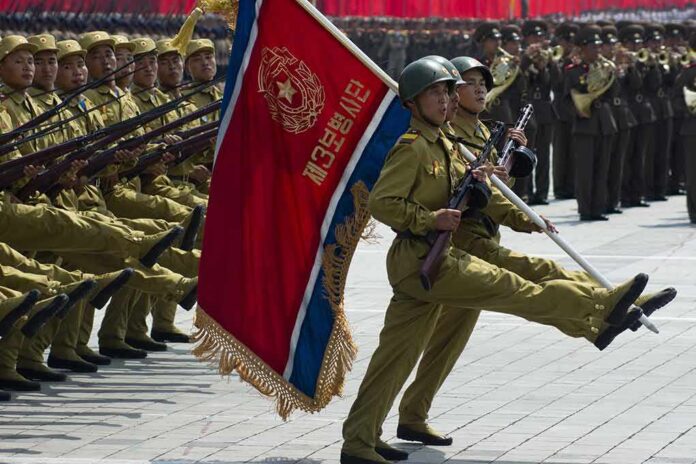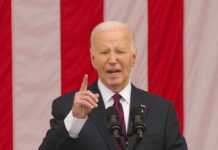The revelation of North Korean troops suffering casualties in Ukraine shifts the lens on a deepening international crisis.
At a Glance
- About 30 North Korean soldiers were killed or wounded fighting near Russia’s Kursk border.
- This is the first confirmed North Korean military involvement supporting Russia.
- Communication issues persist due to language barriers between Russian and North Korean troops.
- The geopolitical stakes rise as international actors enter the Ukraine conflict.
North Korean Troop Casualties in Ukraine
Ukraine’s military intelligence has reported the deaths and injuries of approximately 30 North Korean soldiers in combat situations near the Russian Kursk border. This unprecedented development marks the first acknowledgment of such casualties and signifies North Korea’s active support of Russia in its ongoing conflict with Ukraine. Though Russia continues to focus its military efforts on the eastern regions of Ukraine, the presence of North Korean troops adds a new layer of complexity to the war.
The involvement of North Korean forces in this theater of war introduces new operational challenges. Analysts note that language barriers complicate coordination efforts between Russian and North Korean units, potentially hindering their effectiveness on the battlefield. Despite these hurdles, North Korea appears determined to honor its defense pact with Russia, bolstering its ally’s military operations.
Preliminary data indicates that Russia has begun using a significant number of North Korean soldiers in its assaults. These troops are being integrated into combined units and deployed in operations within the Kursk region. For now, their involvement is limited to this area, but… pic.twitter.com/7vBp4VAJlR
— Volodymyr Zelenskyy / Володимир Зеленський (@ZelenskyyUa) December 14, 2024
Strategic Implications of an Expanded Conflict
North Korea’s participation underscores the increasing internationalization of the Ukraine conflict and raises significant geopolitical questions. While South Korea has expressed concerns over North Korea gaining valuable combat experience, the broader implications for regional stability remain unclear. The presence of North Korean troops may also signal Pyongyang’s intent to gain access to advanced Russian military technologies and financial compensation for its military support.
According to the Institute for the Study of War, “The poor integration and ongoing communication problems between Russian and North Korean forces will likely continue to cause friction in Russian military operations in Kursk … in the near term.”
Despite Russia’s strategic goal of reclaiming territory in Ukraine’s Kursk region, the addition of North Korean forces may not significantly alter the war’s trajectory, given their lack of experience. However, it reflects a broader strategy of dependence on foreign military support, indicating a potential shift in the regional power balance.
"The Russians are running 1,200 casualties a day in their fight in Ukraine. If they use the North Koreans the same way—likely they will—there are going to be massive casualties in the North Korean forces." https://t.co/ksgBNZdkan
— RAND (@RANDCorporation) November 2, 2024
The Global Response and Future Scenarios
As the conflict widens, international observers continue to monitor developments with caution. The potential for further escalation exists, especially as new alliances and support mechanisms appear on the horizon. The ramifications for North Korea’s involvement could influence diplomatic relations in Northeast Asia and beyond, with countries like South Korea contemplating shifts in policy.
Furthermore, Mark Cancian, of the Center for Strategic and International Studies, says that North Korean troops are “thoroughly indoctrinated but with low readiness.”
The international community is urged to weigh the implications of North Korea’s growing military entanglement in the Ukraine conflict. The ongoing engagement in Ukraine could have lasting effects on global stability and peace efforts, prompting a reevaluation of security strategies and international partnerships.
Sources:
- https://dnyuz.com/2024/12/16/ukraine-claims-north-korean-troops-were-killed-as-they-fought-alongside-russian-forces/
- https://apnews.com/article/russia-ukraine-war-north-korea-troops-33bf427736c5802fb97df41fdbf61396
- https://www.nytimes.com/2024/11/10/us/politics/russia-north-korea-troops-ukraine.html
- https://www.bbc.com/news/articles/cm2796pdm1lo











